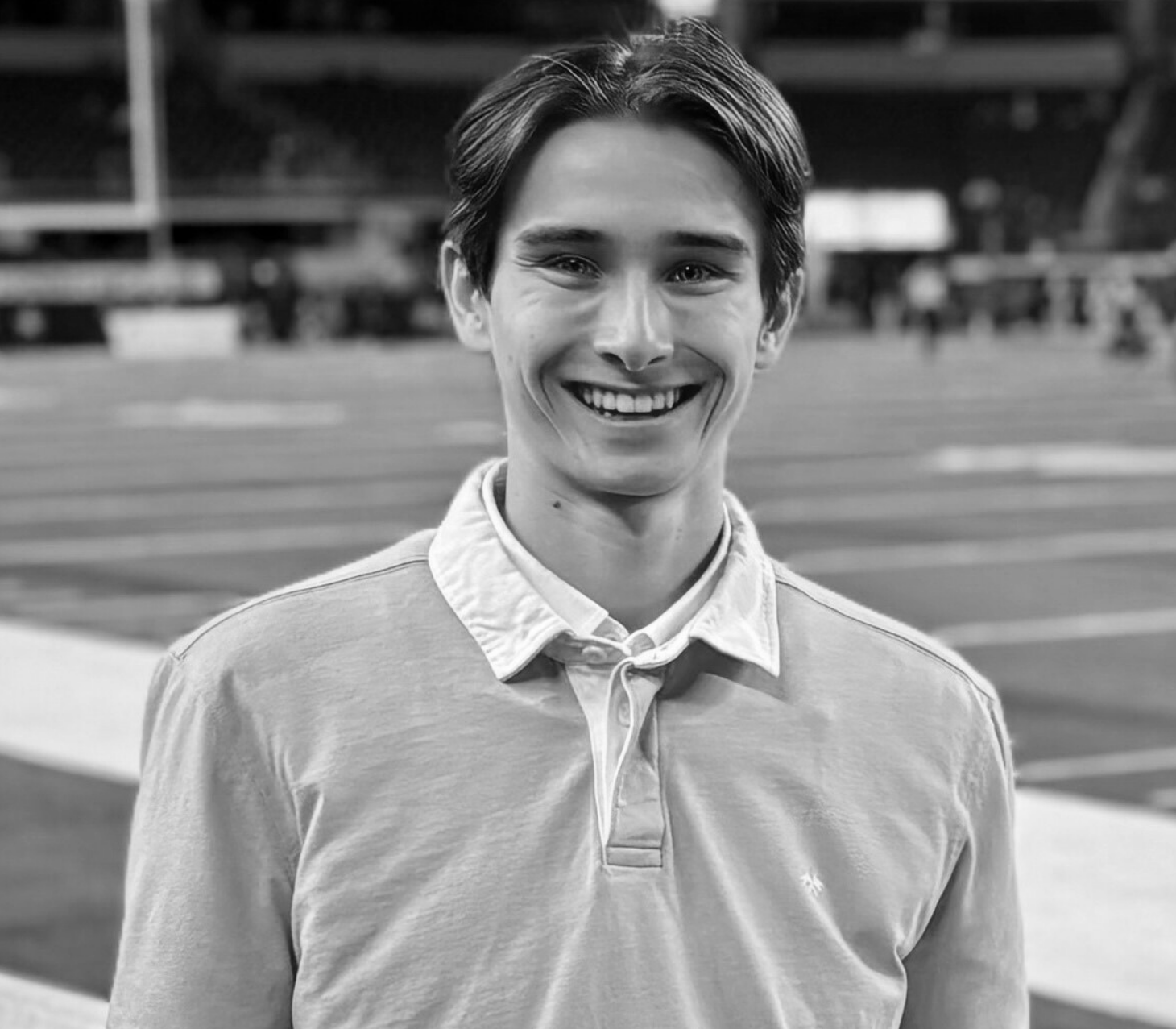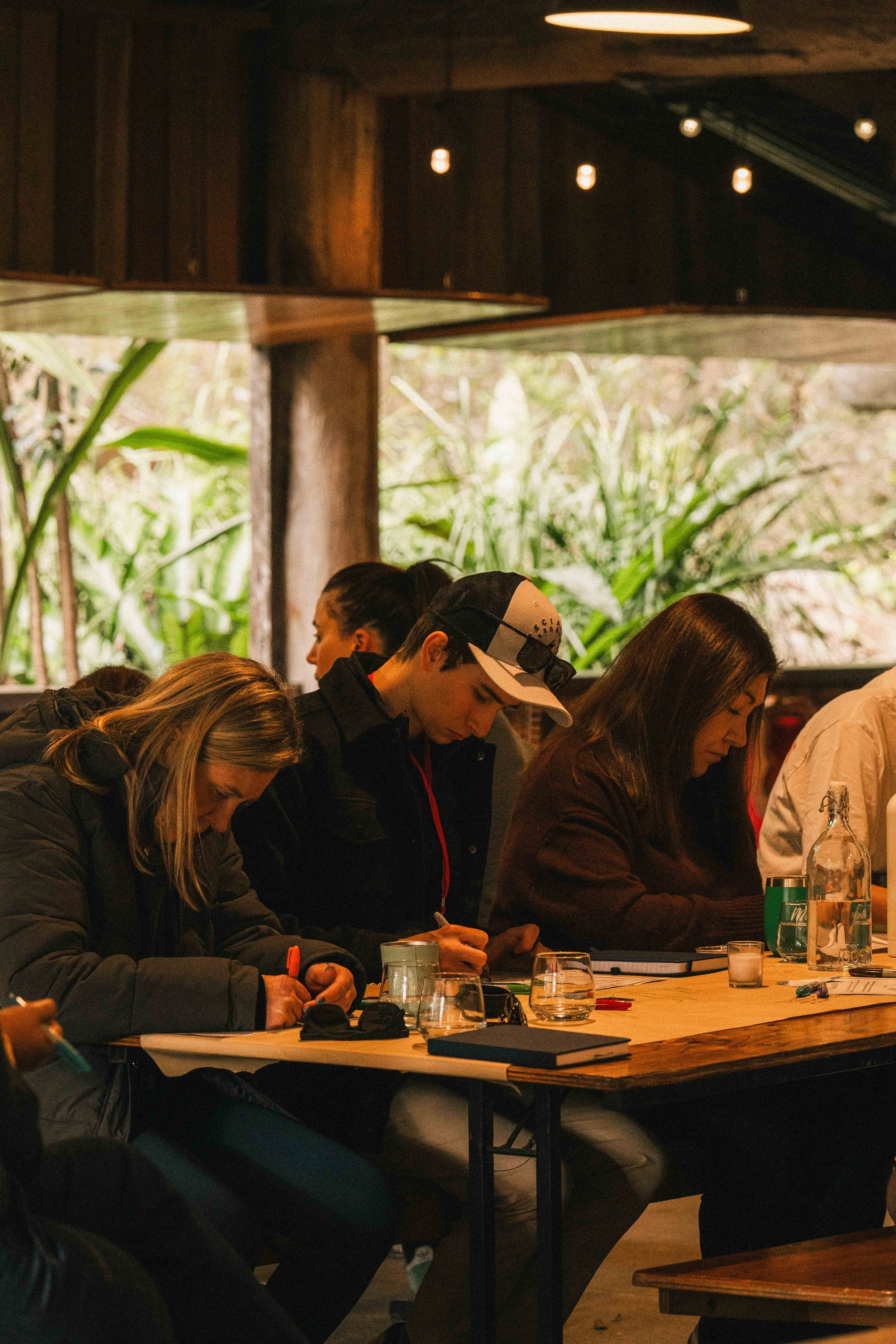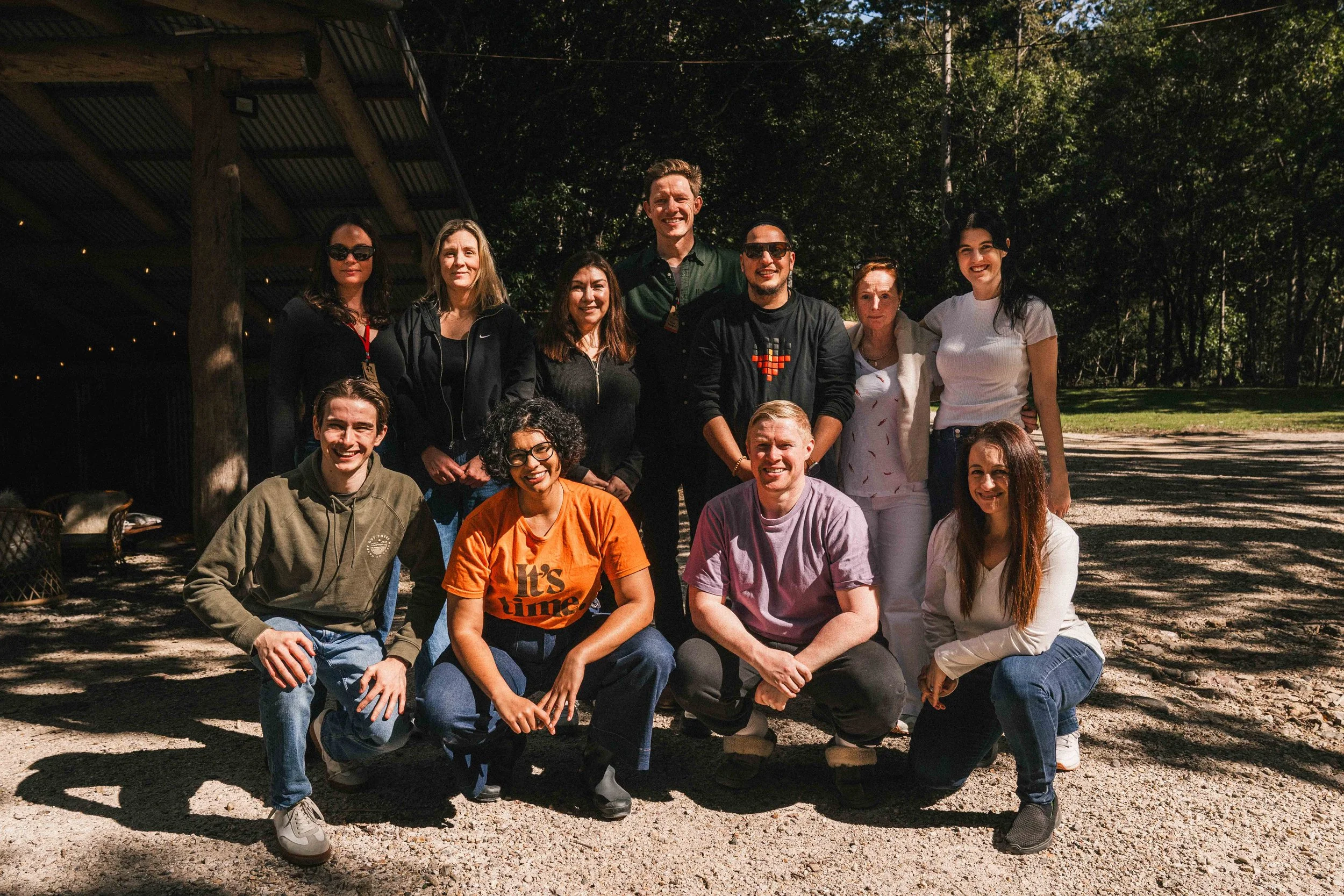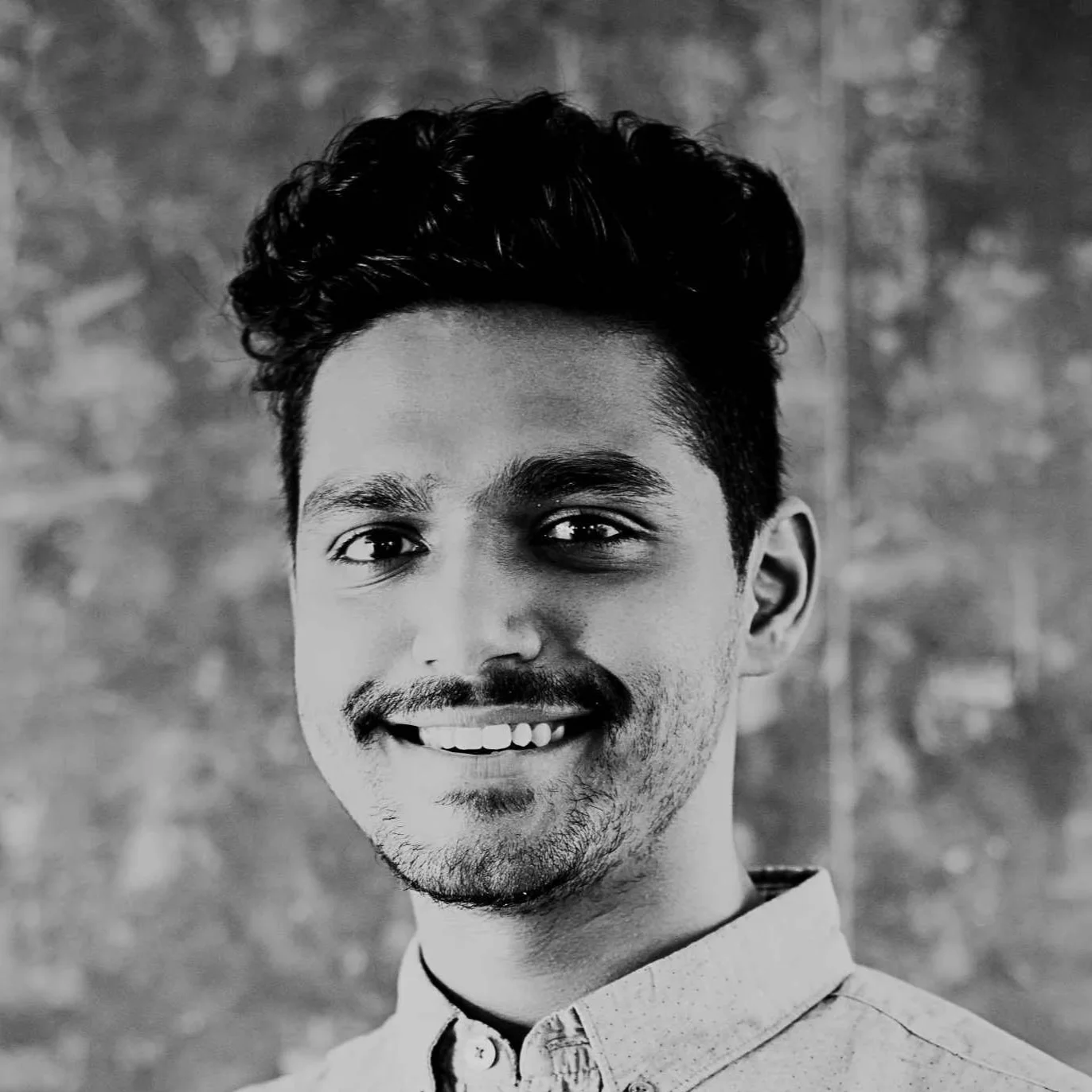Bradley Cox On Leveraging Software To Empower Students Through Accessible Exam Preparation
Bradley Cox is a self-taught software developer and the founder of Exam Insights, a platform designed to make Year 12 exam preparation easier and more accessible.
While studying for his own Year 12 exams, Brad noticed how difficult it was for students and teachers to find and use past exam papers - often the most valuable study resource. That experience led him to create Exam Insights, which turns government-released papers into free, syllabus-aligned question banks.
Brad now works with a small team focused on supporting students and educators through the challenges of external exams, with the support of AMP Foundation, Samsung Australia, and Advance Queensland.
Bradley discusses the importance of supporting students to succeed to their fullest in their schooling, and some of the key lessons he has learnt as a young entrepreneur.
Highlights from the interview (listen to the podcast for full details)
[Emma Dimech] - Could you share a bit about what led to your work in software, education, and social enterprise?
[Bradley Cox] - I’d always been interested and dabbling in coding, but fourteen was when I started to do a few massive open online courses (MOOCs). They're incredible free, university level courses, with the most famous one being the CS50, Harvard's introductory to computer science. Completing that course, alongside my senior school studies, I was able to teach myself how to code. It’s a similar story for my co-founder, Jason Zhong.
If you zoom out even further, my family was a big influence. My mum is a prep teacher and my dad's an entrepreneur in AgTech, so I've meshed those together to become an entrepreneur in EdTech.
From a social enterprise lens, myself and my co-founder have always been very driven toward solving real world problems and doing so in an ethical way. It enables you to do a lot of good in the world, while also ensuring that the time you put in is getting repaid as well.
Your social enterprise Exam Insights is focused on bridging the gap between senior high school students and comprehensive exam preparation. Can you tell us more about how you're breaking down those barriers in the education system?
If you look at it really simply, the problem we solve is that these final year external exams are extremely stressful. For some students, they're also incredibly life changing in terms of escaping poverty, getting university entry, or getting a job. These external exams are worth up to fifty percent of a subject's score, so these exams mean a lot, depending on the career pathway you want to take.
With that all being said, past exam papers are the best indicator of what the real exam will be like. Practicing past exam papers and questions is the best indicator of how you, as a student, will go on the test. That is the core idea behind what we do. We consolidate and classify past external exam questions pulled from QCAA material.
Here in Queensland, the current external exams were introduced in 2020. Since then, we already have a database of about three thousand questions across twenty-two subjects. Our goal is to provide an access layer, so anyone can find the right question. That's the bulk of what we do for free.
As a team, we believe that search should be free. That's why we never pay wall any questions, especially since these are publicly available questions. Our job is to supercharge this by creating resources, which is a massive time saver for teachers. The second half is focused insights, which is all around historical exam trends and looking at your performance. We're just getting started on that front, but it’s a really powerful tool.
Really, how this started was watching my teachers. Back when I was studying in 2023, I saw them scrolling through past papers for hours trying to find the right question for us. I felt that we were well positioned, given we had the technical skills and the domain knowledge of understanding this complex environment.
What we didn't fully appreciate at the time was the sheer amount of market research we were able to do. We had fellow students, educators, and senior school leadership.
We were able to do mass amounts of market research to validate that problem, but we really should have done more on validating if the pain point translated into people paying to have it solved. Luckily, that's since worked out, but that’d be a small lesson for next time.
I was having a chat with someone, and they said they don’t remember seeing news stories about the stress of year twelve exams twenty years ago. Now, every year, you have plenty of media coverage about stressed students. I’m not sure culturally where that has shifted, but I know for Queensland, since we've moved to exams being worth fifty percent of your final grade, it's naturally very stressful. If you have a bad two hours, that's half of your grade gone.
In founding Exam Insights, what have been some of the major challenges that you've had to face and how did you overcome them?
My co-founder and I would have different views on this first point, but I believe we encountered a major challenge around our freemium offering. It was clear we solved a problem, but we were struggling with monetising.
For reference, in 2023, purely through word of mouth, we were able to support over four thousand students and educators in Queensland. In 2024 that grew to twenty-two thousand. That's a little over sixty percent of year twelve students looking at an ATAR pathway in Queensland.
At its core, we strongly believed that providing access and being able filter and find these valuable questions should be free. While eventually we found that happy medium, we went into this big spiral midway through 2024, believing that we couldn’t monetise what we already had, we had to build more.
Unfortunately, our realisation came a bit too late and it looked quite opportunistic, where we put a paywall on certain features closer to the external exam season than I would’ve liked. It looked like we had built up all this traction and then surprised everyone with a paywall. That was one mistake I had to learn from.
Whenever people ask my opinion, I always bring attention to figuring out pricing structure and your business model.
When we started in 2023, we were solving this problem with no real commercial intent in mind. We just knew it was a problem that needed to be solved. At the time, we were juggling building the initiative and studying at the same time, so monetisation wasn't really on our mind.
In 2024, we really focused on understanding what our business actually looked like.
I view entrepreneurship as something where you learn from your mistakes as you go. The lessons you learn aren’t taught in university. You attain them just by doing. Some of them are actually really hard to articulate; it's more that self-consciously, you know what to do. If we were to redo all of this again, it'd be incredible how quickly we would find product market fit without running into those same mistakes.
In terms of other challenges, there’s an ever-evolving landscape in terms of AI and there are some incredible things coming, especially around the democratisation of an AI tutor. What we have now is already leagues beyond what we had three years ago. It's only going to get better and better.
That's both scary and really exciting. The idea of a moat for a SaaS company has to change and evolve, because software is becoming that much more democratised. While it’s sometimes a lot of AI slop, there’s incredible capability now for vibe coding, where an AI like Chat GPT will code the entire website for you, working essentially as your own software engineer. Everyone can now create really amazing things.
It's important in that context, for us to understand what our long-term goal is. Search should always be free, and our search engine will always stay like that. That's a big driver in our product-led approach.
I really love the product-led approach. It shows that when you build a really good product with a generous pricing structure and low friction that things do pay off.
While I’d never trade our approach, it’s interesting to think from a sales-led lens. You do wonder how much revenue you’re giving up by having a generous free structure. That really comes back to our ethics and how we view this business.
We’ve also been warned about how we model our business, and I think we're juggling that well. We have B2C sales, which is selling to individual students and educators. We also have B2B sales, but for us, it’s really business to customer and then to business. We have passionate educators who pass our platform on to higher ups in their school, so the school then purchases it for all the students and educators.
We've been warned trying to tackle both of kinds of buyers because, generally, an individual customer is different from a business looking to purchase a product. They have different priorities and trying to balance that as a business can be tricky.
Even though there are plenty of challenges, the statistic that keeps us going is that around ninety percent of startups fail just because the founder quits. To overcome these challenges, we have to not be afraid of stepping back and taking the time to understand where we're at and what we need to do. It’s about not getting too stuck in little things and instead looking at the big picture.
I also need to give a big thanks to Advance Queensland, as well as AMP Foundation for having belief in us early on. Everyone knows that startups early are a giant risk. You start from zero revenue, and you need to grow that from nothing. While that is growing, to have a safety net is incredibly valuable.
The grants we’ve received are amazing, but at the end of the day, we need to remember that you cannot live off grants. I view them as a band-aid on a business model. You can only rely on them for so long. My number one goal, and probably number one headache as well, is financial sustainability, but we're doing really well towards that.
As an AMP Foundation Tomorrow Maker, you're currently getting support to develop and grow Exam Insights. What have been your reflections and learnings from the support to date?
I've been very lucky to take part in UQ Ventures Accelerator, alongside fourteen incredible SaaS founders, and now I've been able to take part in the AMP Foundation Tomorrow Makers program, alongside eight incredible social enterprise founders. I really feel I've found my place here. The emphasis on wellbeing and us as founders is second to none. The culture of working as hard as you can is very important, but work-life balance still needs to fit in.
For me, I'm very lucky because I love what I do, but I also know when to step back. Having a mindset where you’re constantly thinking about what you can do to move the needle just that little bit, create that little bit more revenue, and so on and so forth, can be damaging. I think we always need urgency, but reflecting and making sure that we as founders and our teams have a really solid foundation for wellbeing is just as important. That was one of the immediate things I learned.
Recently, I took part in a leadership retreat down in northern New South Wales and as a very young person, going on a leadership retreat was a bit of a ‘pinch me’ moment. The experience was really enjoyable. Being able to take some time to step back and meet my fellow Tomorrow makers for the first time was great.
There's a lot to learn just by talking to fellow founders, whether they be in software, building physical structures, or generally helping people in need. It's been incredible.
I'm very fortunate to have monthly calls with my Tomorrow Makers, and Tom Allen from Impact Boom has been incredible in our chats with him.
I think it says a lot when AMP Foundation is willing to put funds aside for capacity building. When I first heard it, I had no clue what capacity building was, and I've since fallen in love with that idea and how important it is.
I cannot have enough praise for Tom, as well as Nicola Stokes and Lucy Watson from AMP Foundation. It’s great being around people who believe in you and are rooting for you.
Work-life balance is especially difficult in social enterprise, where you're doing work that has such a good cause that you can feel sort of indebted to it.
I agree. That reminds me of another chat that we had on the retreat, which really had me reflect on our role as a social enterprise. The whole concept of a social enterprise is, in my eyes, very focused on financial sustainability. My job as a founder being supported by AMP Foundation is to build the best business that I can, one that's profitable and exemplifies business for good.
Really, business for good should just be business as usual. Companies should be doing good, all day, every day. We need more social enterprises that are big and are doing incredible things in an ethical way. That's my job. My success is a reflection on AMP Foundation and vice versa.
One of the pitfalls we fell into was believing that in order to be a social enterprise, you can't charge almost anything. Our pricing was extremely low for education related products. Our belief was predicated, of course, on ensuring that everyone could have access. In our chats with Tom, we've since figured out that part of our job is to be financially sustainable.
What advice would you give to young aspiring entrepreneurs looking to create an initiative focused on social impact?
I won't ignore the fact that what I do is risky. No one's going to provide me with my weekly wage, I create that alongside my team. My biggest fear is that long term, we're not able to make enough to support myself and have the team be paid really well. Potentially, I'd have to go part-time on this and part-time on something else. That’s probably worst-case scenario, and even then we’d still be supporting thousands of students and educators every single year. We are making a difference. We are helping people. There is no lose-lose scenario.
In terms of young aspiring entrepreneurs and my advice to them, while it’s risky, there are a lot of ways to get into the entrepreneurial space by de-risking. We’re having these giant shifts where, from a software point of view, it's easier than ever to build software for very cheap.
You don't even necessarily need a product to sell. If you have a problem and someone relates to that problem, getting in the door to chat about that problem is easy. You really need to be laser focused on finding a real problem. If someone doesn't care about the problem you’ve found, having a solution isn’t going to make much of a difference.
One big thing is market research. If you are a technical kind a person, more than likely, it’s easier for you to code and build than talk to your potential users and conduct market validation. That's the biggest pitfall. You don't want to have this incredible product that you've spent weeks, months, years on, only to find out at the last minute that you don’t actually have an audience. Understanding your business model is really crucial, as is having a really solid network around you.
Another point is that your rate of failure is directly proportional to your rate of success. If you are failing more, you're learning more, and that means you’ll get to a successful outcome quicker. Viewing failures as a step towards success is important for your mindset. On our journey, we have made so many mistakes, but they're just steps to where we are today.
If you can get a co-founder, I’d definitely recommend that. It’s incredible. When you’re feeling down, the other person is able to pull you up and vice versa. It’s also really critical having them as a sounding board to bounce ideas off.
The fact that you're even considering social impact is incredible. I've found it's very easy to build a product that people need. I've done that with Exam Insights. I understand it can be difficult to figure out what problem to solve. It's not something you can pull from thin air, and for us, it was just a situation that we were in and were equipped to solve. To go out and build whatever you are trying to build with a social impact lens is incredible. Hats off to you. Continue on that path and have faith in the work you’re doing.
What inspiring projects or initiatives have you come across creating social change?
I have to give a shout out to all of my Tomorrow Makers. Hearing their stories was amazing on the retreat. I think what Rebecca Keeley (Yarn Speech) is doing is incredible. She doesn't have a software background. She's a speech pathologist and the software that she's been able to develop in her long-term vision on remedying the ridiculous wait lists for speech pathologists in this country is really incredible.
Everyone from Sita Sargeant (She Shapes History), Luke Anderson (Fair Threads), Levi-Joel Tamou (Love Ya Corporate Catering), Maria Jerez (Accessilife), Melissa Abu-Gazaleh (Top Blokes Foundation), and Kelly McJannett (Food Ladder) are incredible.
From an educational lens, the work that Khan Academy does is incredible. There is some really important work to be done in the education space, and I hope that we can continue to contribute.
Finally, in the education space, Kelly is doing incredible things with her initiative Food Ladder. They’re growing food and have classroom sized greenhouses for lessons to be delivered. The work that she's doing with lower socioeconomic communities and schools is all about ensuring that every student can come to school well fed, enabling them to learn and grow.
To finish off, what books or resources would you recommend to our listeners?
I am still in the middle of The Five Pillars of Wealth, and that has been a fantastic read. It’s focused on looking at wealth as more than just monetary wealth, I cannot recommend it enough.
I also have a few more that are always good reads. Diary of the CEO and Feel-Good Productivity are great. From my software background, I’d recommend The Lean Startup. For me, The Five Pillars of Wealth really stands out as a really good read. It’s taken me so long to read because every time I sit down with it, I take notes so I can put everything I'm learning into practice.
Initiatives, Resources and people mentioned on the podcast
Recommended books
The Five Pillars of Wealth by Benson Raphael
Diary of the CEO by Steven Bartlett
Feel-Good Productivity by Ali Abdaal
The Lean Startup by Eric Ries








